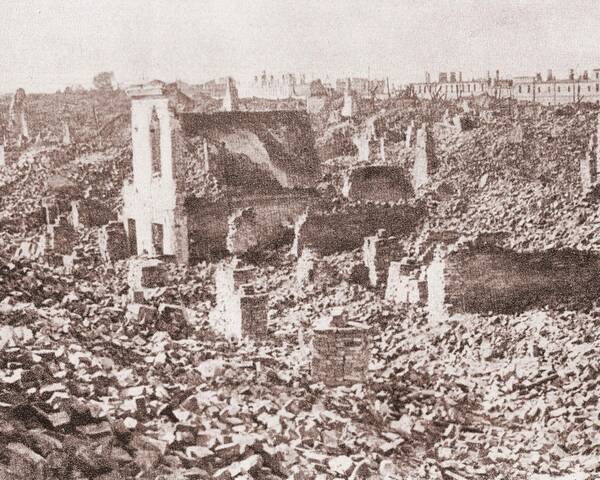Letters / On “What I Read to the Dead”
As the daughter of a woman who, at age 15, fled the Warsaw Ghetto just as deportations to Treblinka began, I was excited to read Emily Julia Roche’s translation of Władysław Szlengel’s “What I Read to the Dead.” Szlengel belonged to the same milieu as my family—intellectual, secular, city-dwelling Polish Jews—and I was eager to reconnect with a sensibility I’ve known intimately all my life. Yet as I spent time with the translation, I noticed that it awkwardly mimics Polish grammar and sentence structure, at times obscuring meaning, and grew puzzled by the absence of the irony and dark humor so characteristic of the tribe that raised me, survivors whose profound trauma was inseparable from the caustic wit through which they filtered the horror of their experiences.
Suspecting that this was not a reliable rendering of Szlengel’s prose poem, I tracked down the original and began to translate it myself. I quickly found my suspicions confirmed. Roche’s translation does, in fact, obscure Szlengel’s defiant wit. For instance, when Szlengel refers to an earlier poem he’d written, she titles it ”Give Me Peace.” The actual title is “Give Me A Break”—no piety, all eye-rolling. (Throughout the translation, she offers literal renderings of idioms that gravely distort meaning.) Similarly, Szlengel’s ironic reference to “the high cost of a certain resemblance” (i.e., the fatal price of having typically European Jewish facial features and hair type) is mistranslated as “estimations of our chances of survival.”
Elsewhere, research failures erase precious facts about ghetto life. In one footnote, Roche refers to the Daily Life—more accurately, The Living Daily or The Daily, Live (think Saturday Night Live)—as “the newspaper of the Warsaw Ghetto.” It was actually a cabaret: Szlengel and his friends put on underground performances so entertaining that Gestapo officers and Jewish collaborators attended shows that mocked them to their faces. In many instances, Roche’s word choice ignores context, leans into the least relevant of multiple meanings, or is flat-out wrong. For example, two errors distort the line, “Four days on this piece of space without an exit, holding out against the raging storm.” While “bez wyjśća” does literally mean “without an exit,” in this context the sense is “without recourse.” And “zalewający żywiołis” (literally “the flooding element”) does not mean “raging storm.” Rather, it’s a botanical term meaning “invasive species,” used in 19th-century clerical writings in reference to Jews replacing an indigenous population. Szlengel writes of spending “four days sharing a tiny space . . . with no recourse against the advance of the invasive species,” turning an antisemitic trope against his persecutors. As a result of these kinds of mistakes, so much is lost.
I completed my own translation mostly to repair my lifelong heartbreak over the erasure of the cosmopolitan, urbane culture that defined my household yet rarely appears in American narratives about Polish Jews. Before the war, when photographer Roman Vishniac was dispatched to Poland by the Joint Distribution Committee, a Jewish relief group, to document its Jews for fundraising purposes, he was directed to focus on the poor Jews most likely to inspire pity; his portraits of worldly, stylish Jews were excluded from the collections published in the following decades, including his historic 1983 volume A Vanished World, which has fundamentally shaped American perceptions of European Jewry. The Jews I descend from were exterminated with the same ferocity as their shtetl cousins—but since fewer had felt compelled to emigrate, they were less likely to have extended families in the US to keep their culture and traditions alive.
Szlengel’s riveting account of the final days of the Warsaw Ghetto, gutting and gorgeous in equal measure, is rendered ugly and incoherent by this translation, which dishonors both Szlengel’s legacy and the historical record he so desperately wished to fill in. This year marks the 80th anniversary of the Warsaw Ghetto Uprising and of this poem; it saddens me greatly that at this historic juncture, English readers will access this translation and misapprehend both the facts and the glory Szlengel offered the world.
Guilford, CT
